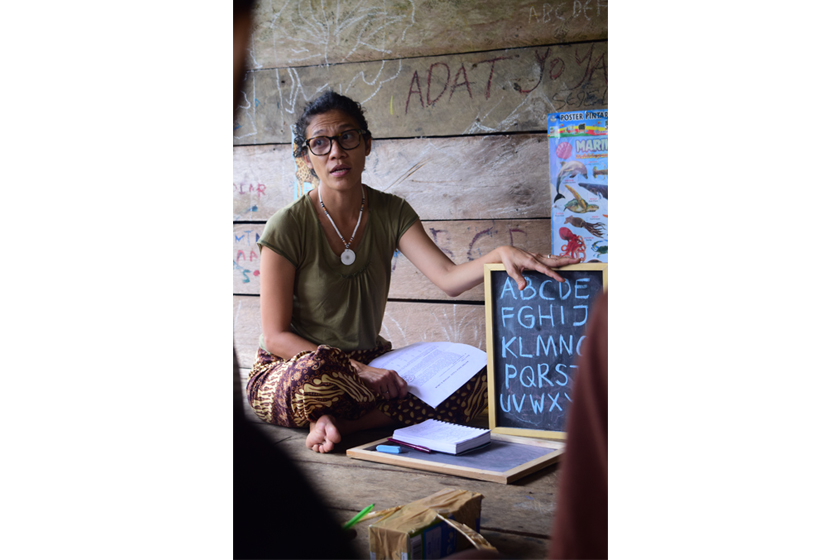
05 November 2024
Join Our Lecture on “How Is a Human-Rights Approach to Disability Applied in Higher Education?”
How can higher education use a human-rights approach to better support students with disabilities? J... Read More
The Australia Awards are prestigious, transformational scholarships and short courses offered to emerging leaders for study, research and professional development in Australia

14 Dec 2020
 Sekolah Suku Tengger Bromo
Sekolah Suku Tengger Bromo
Project leader: Mrs. Saur Marlina Manurung
Level of education and university: Master, The Australian National University
Collaborating Organisations: -
Project Location: Jawa Timur
Activity Type: Community development activities
Sector: Education and training, Education management, Development studies
Project Rationale:
The project is important because it will address the issues of illiteracy in the Tengger indigenous community so that they can advocate for themselves against massive tourism development, while also trying to improve the ecosystem around Ranupaki Lake. These are the problems that exist:
1. High illiteracy among the teenagers in the indigenous Tengger community and also high school dropouts that lead to low basic literacy among children under 12 years old. With this high illiteracy, the Tengger community is not able to participate in deciding the development of their region, especially with the booming of tourism push by the Bupati. The previous village head is illiterate and while the new village head is now a university graduate, he does not have any idea about Dana Desa (Village Law). With better literacy skills, it will help the community to be able to advocate for themselves and make informed decisions about the development. Furthermore, the project will also involve the local elementary school that is currently only staffed by two teachers with low attendance. The school and community do not have a good relationship as they complain about each others' capacity. This project aims to bridge the relationship between school and community, to make it more productive.
2. This project will also help address ecological issues where local farming has been exposed to commercial and chemical fertiliser, which have caused erosion on valleys and silting of Ranupani Lake. This village is neighboured by the National Park office and they do not have a good relationship as the Park Board stated that this village is a threat to the lake ecosystem. This requires dialogue, aiming for a more sustainable ecosystem.
3. Rapid growth of tourism - as this National Park is part of the 88 National Strategic Tourism Destinations agenda with 21 supporting infrastructure plans to be built by the Bupati, this is a place of huge potential but also huge risks for the community. Literacy is important for the indigenous community to cope with the tourism storm the government is campaigning for. The community should be actively involved in social, cultural and economic aspects of their development. By being literate, the community will be able to do advocacy work to ensure that their voice is being heard by the other stakeholders.
Project Beneficiaries:
107 teenagers and 446 families (total population of 1,409) of the Tengger community.
Priority Development Area:
Human development for a productive and healthy society
Link with Australian organisation: -
Share this article on:
 Related Project Profiles
Related Project ProfilesThis website uses cookies to improve your website experience. We may also use cookies to analyse website data so that we can improve our online services. To find out more visit our privacy policy.

